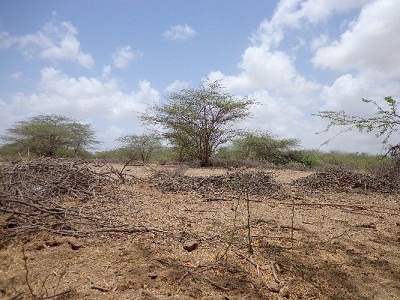LIVELIHOOD

It was a sunny day in Bhuj as we made our way to Faulaivanth village, in Abdasa block, in Kutch area of Gujarat. Seeing the arid landscape for a hundred kilometers and more, it was easy to understand why Kutch is one of the most unforgiving places on earth, with 36 of the last 90 years being drought years.
Most Kutch villages are far-flung and difficult to approach. Even basic services around agriculture and cattle rearing are non-existent, education of children are at best ‘tolerated’ and many Kutch communities impose a near lock-down on women’s movement outside their home.
For me, it was my first visit to one of CARE’s most successful projects- KLEAP (Kutch Livelihood and Education Advancement Project) which aims at improving the quality of life and livelihoods of people in the most backward blocks of the Kutch district. KLEAP’s integrated package of solutions brought about sustainable improvement in the productivity of land and cattle, bettered business prospects, helped people develop and run self-managed systems in agriculture, microfinance and education which empowered women, families and the communities they live in.
But I digress. I am eagerly waiting to reach Faulaivanth village, a small hamlet of 12 families for whom agriculture is the sole source of income. And after more than three hours, suitably fortified by phapra and jalebis on the way, I am finally there.
We meet up with Desar Suleman Bhai, sit on a charpoy under a makeshift cover, and hear his story.
Initially he says it was difficult for him to earn a livelihood. There was no water, the land was parched, and whenever there was little rain, the water drained off. Gradually people started selling their lands and moved away as they were unable to sustain a livelihood.

“I, my wife, and the children used to go out to work and earn a daily wage building roads and digging ponds. We had just about enough to eat and no money for clothes. They were difficult times” says Desar Bhai. “Then VRTI (partner of CARE India) and CARE came along and helped with construction of water tanks and drinking water channels for the cattle.”
He further continued, now surrounded by his family, who were excitedly talking and laughing among themselves. “The condition of the land also improved with soil conservation methods which stopped the desertification and increased the cultivable area. Simple practices like land levelling, creating bunds within the plots, and lift irrigation with the help of a diesel pump shared by all families, improved the quality of the land and we started getting good output. Desalination through gypsum treatment also helped in reducing the saline content in the soil, which helped in the growth of crops.
We asked if there was enough water for his crops. He answered “Yes, and with the excess water we even have a kitchen garden to grow vegetables”. Desar Bhai continued, “Today our cattle is healthier too, and though previously we used to have black tea, now we can have our tea with milk”. This simple statement touched a chord in my heart, and I realized how changes, with a little help from organizations like CARE, can make a big difference to the lives of these simple people.

As Desar Bhai continued to speak, we realized that one more significant change had happened through CARE and VRTI’s intervention. The farmers were linked and provided access to markets to get the right price for their produce. “This in turn provided us with increased incomes- previously we were getting only Rs 10- 15000 per season, now we get more than Rs 90000”said a happy Desar Bhai. The farmers were also provided finance through loans from Dena Bank and they could access the loan through Kisan Credit Card scheme.
“I cannot thank CARE enough. My life and my children’s life has been changed forever. We will continue to take guidance in times to come” he exclaimed.
As we made our journey back to Bhuj, the CARE team silently reflected on the experience, and wondered how to reach out to many more Deshar Bhai’s.
Like Deshar Bhai, 25000 farmers and their families across 225 villages have benefitted from CARE’s intervention through the KLEAP project. This has been made possible with support from CARGIL.




